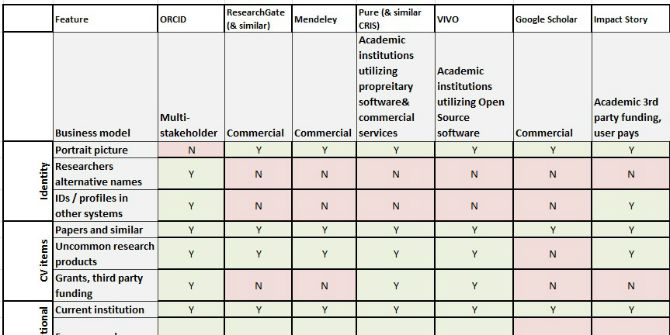
 Jonathan Harle and Sioux Cumming discuss how to strengthen research networks in developing countries. There is still a huge body of Southern research which simply never gets counted. Research that is undertaken and published in the South needs to be valued, and this will only happen when Southern universities value it in their reward and promotion systems and when research funders recognise it in the grant applications they receive.
Jonathan Harle and Sioux Cumming discuss how to strengthen research networks in developing countries. There is still a huge body of Southern research which simply never gets counted. Research that is undertaken and published in the South needs to be valued, and this will only happen when Southern universities value it in their reward and promotion systems and when research funders recognise it in the grant applications they receive.
The other week we came across this infographic posted by the Oxford Internet Institute, showing the geography of academic knowledge. As is instantly clear, Europe and North America dominate the production of academic research, with Latin America, Africa and South Asia barely visible. In fact only Nigeria and South Africa make it onto the map for Africa, while the whole of central and Southern America is reduced to six countries, and while Pakistan is just about visible alongside its larger neighbour India, Sri Lanka, Bangladesh and Nepal (3 countries that INASP works with) are entirely absent.
Figure 1: The Location of Academic Knowledge (click to enlarge)
Source: Graham, M., Hale, S. A. and Stephens, M. (2011) Geographies of the World’s Knowledge. London, Convoco! Edition. CC BY-NC-ND
Of course, it’s no surprise that Europe and North America produce so much. Between them they account for some of the world’s leading universities and research institutes and many millions of dollars in research funding. But a closer look at the graphic highlights a major part of the problem. The data behind this – and behind many other studies of global research, such as this recent piece on scientific collaboration is derived from the Web of Knowledge Journal Citation Reports. These capture all journals published with an Impact Factor. But the vast majority of Southern-published journals don’t have an Impact Factor – and thus never get counted. According to Juan Pablo Alperin’s calculations, only 4% of Latin American peer reviewed journals were included in the 2012 Web of Knowledge index – just 242 out of over 5,000 titles. That’s a huge body of peer reviewed Southern research which simply never gets counted, and this is even before we consider the huge volume of ‘grey literature’ – working papers, conference papers, technical reports and the like.
Obstacles to participation
The fact that much Southern research isn’t ‘counted’ isn’t the only problem here. As Laura Czerniewicz argues, the real issue here is participation. Southern researchers whose locally-published work isn’t visible to the rest of the world aren’t able to participate in the international debates that define the global scientific enterprise. To do so they must publish in the predominantly Northern ‘Impact Factor’ titles. While many very good pieces of Southern research do get published in these journals, they represent a relatively low proportion of all research that is taking place. But the problem here isn’t simply the origin of the major international journals. Getting published here can mean following the research agendas and disciplinary trends established by Northern academics and institutions, at the expense of undertaking research which addresses local problems. These are important issues for discussion, but it’s also important that we find some practical solutions too.
Getting Southern research noticed
The first and significant step is to get journals onto the web. INASP’s Journals Online project – and our sister initiative African Journals Online – are working with editors from across the Southern research community to get their publications online. There are now 295 journals hosted online through five Journals Online platforms, running on PKP’s Open Journals System – national platforms covering Bangladesh, Sri Lanka, Nepal, Mongolia and a Latin American regional platform – with a further 469 journals hosted on African Journals Online. All of these titles are scholarly publications, containing original research, peer reviewed and quality controlled. Over 90% of the 25,000 articles within them are open access. A partnership with CrossRef is helping to further improve visibility by registering a Digital Object Identifier for each article, thus enabling links to be made to these articles in the citations of other journals. And it’s working: in 2013 there were 3.5 million downloads from the 127 titles on BanglaJOL.
Raising the standard
The second part of the problem is quality. Southern published journals – particularly those that drop below the radar of the Impact Factor – are often assumed to be of lower quality. A first step towards tackling this is to set firm quality standards. With AJOL we’re developing standards to provide a measure of journal quality – to produce a ‘seal’ system for AJOL, and a five point system for the other JOLs. Our JOLs project provides training workshops for journal editors to enable them to develop the skills they need to publish online through the Open Journals System, and to improve their workflows.
A few weeks ago two members of the INASP team were in Nepal for a workshop with editors whose journals are hosted on the NepJOL platform. The workshop included sessions on required design elements for journals, the use of Digital Object Identifiers, peer-review processes, copyright, plagiarism and ethical issues. By working with editors to strengthen local publications, making them more visible nationally, regionally and internationally, and assisting them to raise quality standards, Southern research stands to gain much greater visibility.
 Image credit: Jim Fischer (Flickr, CC BY)
Image credit: Jim Fischer (Flickr, CC BY)
Of course there’s been plenty of discussion about the limitations of the Impact Factor – for Northern as well as Southern research – leading to the growing interest in altmetrics. The Public Knowledge Project is currently working to provide an altmetrics service for journals using the OJS platform – many of which are Southern based.
In Tanzania we’re working with Commission for Science and Technology and VSO-Netherlands to explore ways in which the national academic publishing sector can be strengthened. A consortium of academic publishers is being established, and a programme of training and skills development for Tanzanian publishers is being developed (for a first-hand account of the project as it unfolds, follow Maaike Duine’s blog).
Re-valuing southern research
We think the work of INASP and our partners is making a significant contribution here – we wouldn’t be doing it if we didn’t – but as Laura’s piece highlights, the problems go deeper than improving the technology, and developing publishing skills locally. Research that is undertaken and published in the South needs to be valued, and this will only happen when Southern universities value it in their reward and promotion systems – rather than just the higher ranking titles of Northern publishing houses – and when research funders recognise it in the grant applications they receive. It may also mean placing greater value on non-journal publication too – but that’s a topic for another post.
This piece originally appeared on Practising Development, the INASP blog, and is reposted with the authors’ permission.
Note: This article gives the views of the author, and not the position of the Impact of Social Science blog, nor of the London School of Economics. Please review our Comments Policy if you have any concerns on posting a comment below.
Jonathan Harle is Senior Programme Manager for Research Access and Availability at INASP. Jon joined INASP in 2013 after six years with the Association of Commonwealth Universities.
Sioux Cumming is Programme Manager for Journals Online at INASP. Sioux’s role involves identifying new journals for the Journals Online project; recording and publishing usage statistics; working with the editors of the journals to load new issues; and keeping the information about the journals as up to date as possible. Prior to joining INASP, Sioux was a lecturer in Zimbabwe for 23 years where she was also the editor and manager of a journal for a number of years.









Thank you for reblogging this post.
Authors and readers might be interested to consult the set of resources we shared on figshare <here after the Discoverability of African Scholarship Online workshop that took place in Nairobi, Kenya on 10-11 March 2014. It was organised by the OpenUCT Initiative and the Carnegie Corporation of New York.
The authors post cite and link to OpenUCT’s Laura Czerniewicz, one of the organisers of the workshop mentioned above.
And what about Southern researchers sitting and talking to Northern researchers using South data? Whose voice are they voicing?
In Bangladesh we are working to improve quality of research on climat change through Young Reseracher support programme under the Gobeshona (Bangla for “research”). See:
http://Www.gobeshona.net